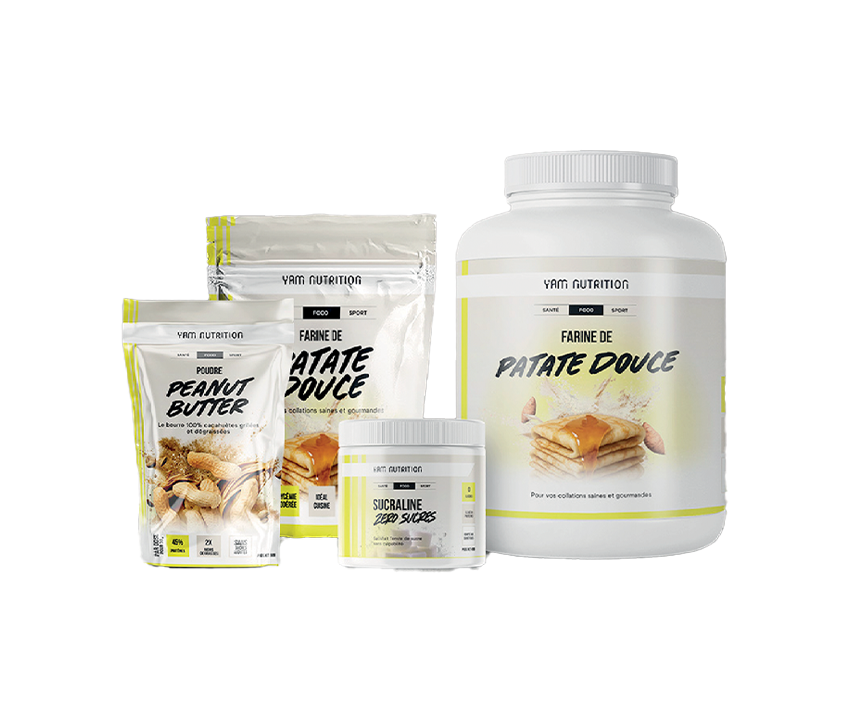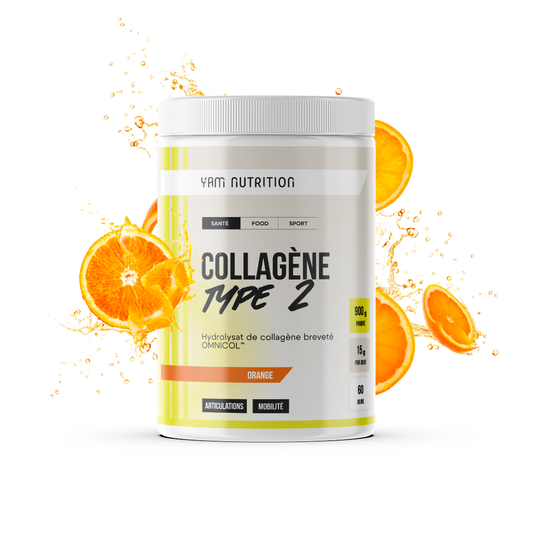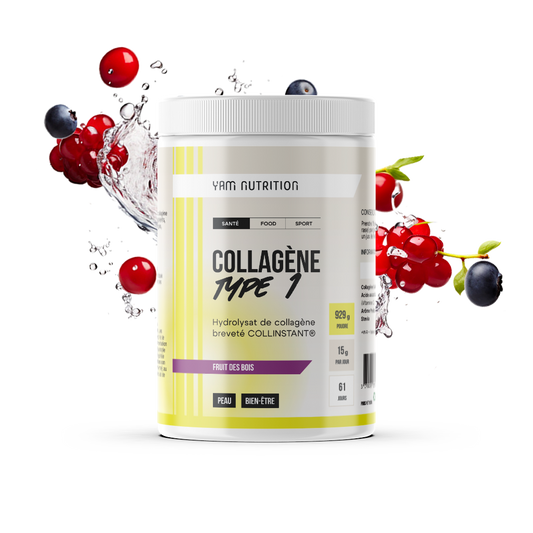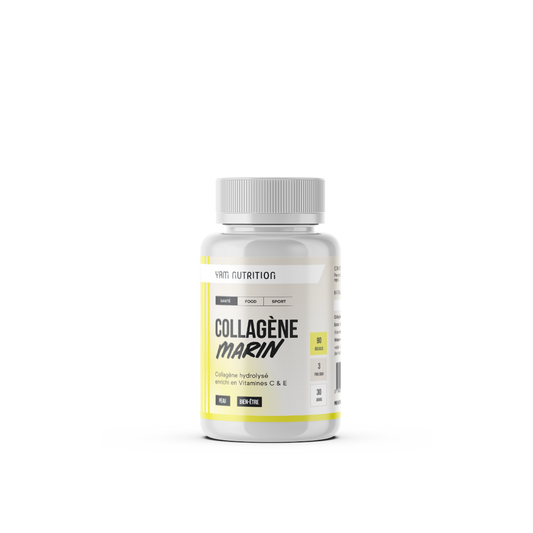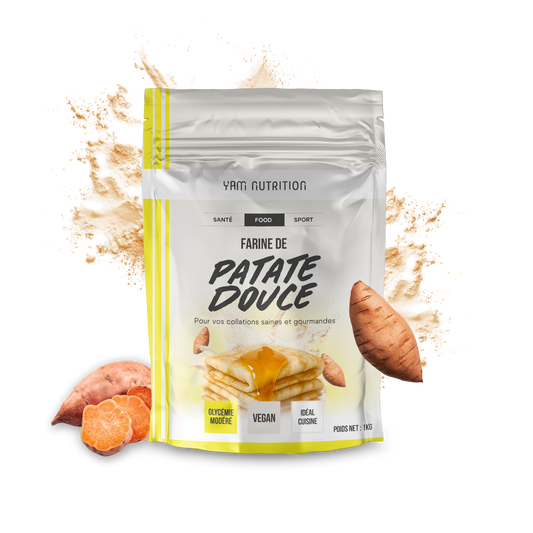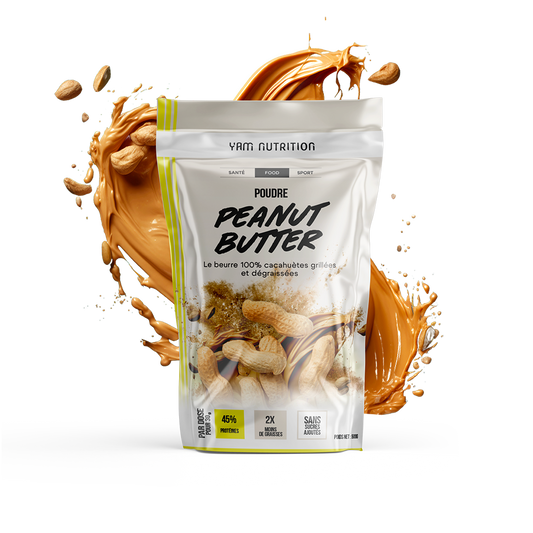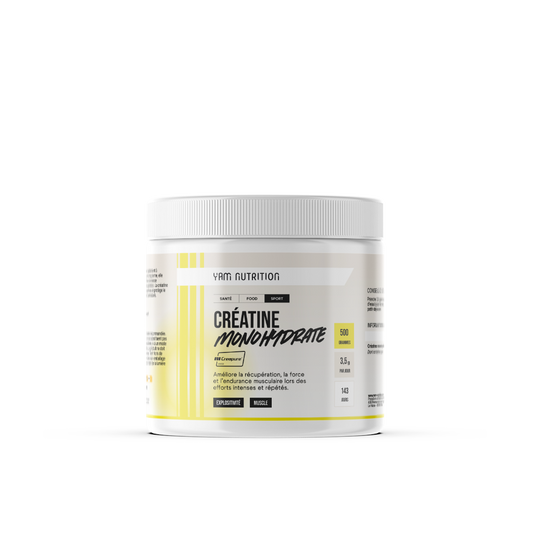The most popular sources of plant protein for vegetarians and vegans

Sommaire
- The number and variety of plant-based protein powders continues to increase and diversify.
- Plant protein sources with a complete amino acid profile are rare, but their quality is equal to that of animal proteins.
- What criteria should be considered regarding the nutritional quality of vegetable protein powder?
- Dried vegetables and cereals are significant sources of vegetable protein.
- Spirulina provides more than 60% protein, an exception in the plant world...
- Spirulina provides more than 60% protein, an exception in the plant world...
- Protein-rich plants also provide vitamins
- Legumes, cereals and oilseeds provide vitamins, minerals and trace elements
- Opti-Vegan from YAM Nutrition, an optimal blend of pea and rice proteins enriched with BCAAs and digestive enzymes
Twenty to thirty years ago, it was quite difficult to find a good source of plant-based protein powder, as the dietary supplement industry produced soy-based protein in this form. Today, the choice of plant-based protein sources has evolved considerably, perhaps even more so than that of animal-based protein. Pea, peanut, almond, wheat, rice, hemp, and lupin protein are now widely available.
OMNICOL™ Patented Collagen Hydrolysate Patented COLLINSTANT® Collagen Hydrolysate Forest Fruits or Mango/Peach Hydrolyzed collagen of marine origin (fish)
Collagen Type 2 Powder
Sale price
49,90 €
Collagen Type 1 Powder
Sale price
49,90 €
Marine Collagen
Sale price
29,90 €
In fact, there have always been vegetarian bodybuilders, but demand has evolved alongside the increase in the number of vegans themselves (vegetarians and vegans). The market has therefore diversified by offering more and more plant-based protein powders. All of this has been made possible by recent technological and industrial developments. New filtration methods allow proteins to be extracted from a considerable number of plant-based foods. Whey – or lactoserum – is therefore no longer really the dominant protein powder on the sports nutrition market.
The number and variety of plant-based protein powders continues to increase and diversify.
Let's add that it's not just vegetarians and vegans who consume plant-based protein powder, if only to vary tastes and nutritional intake, even for fans of dairy protein powder. Strictly speaking, there is no real competition between whey , casein, and plant-based proteins, except that only plant-based sources are taken by vegans, obviously. Nutritionally, animal-based proteins are more often complete than plant-based sources, at least theoretically. Let's say instead that a fairly small number of plant-based proteins have a complete aminogram compared to animal-based proteins. However, some proteins, notably those from peas, soy, hemp, or lupin, are certainly as qualitative in terms of protein as animal sources of protein. Vegetarians and vegan athletes generally eat as well as omnivores. Their intake of protein and essential amino acids is often just as good. This is true for vegans who are well aware of the protein content of the foods they eat.
Plant protein sources with a complete amino acid profile are rare, but their quality is equal to that of animal proteins.
Obviously, plant amino acids are first consumed and metabolized by animals to serve as the basis for protein synthesis at the animal muscle level. We then consume the meat of these animals or their milk, which then have a high concentration of essential amino acids and peptides. This is even more true of milk, which concentrates a high density of amino acids or macropeptides that stimulate the immune system of the newborn. This would therefore explain this.
Despite this, some plants, and in particular those we have just mentioned, contain a high quantity of proteins and essential amino acids . Obtaining a protein concentrate from rice, hemp, pea or lupin is then just as easy to achieve as for dairy proteins, for example. This is all the more true since a large number of plants or legumes often have a higher protein content than we think. It is then sufficient to extract and concentrate the proteins to obtain a concentrate or isolate of vegetable protein rich in amino acids. In fact, only technological and industrial limitations limit the ease of extraction of vegetable sources of protein. On average, legumes (peas, beans, lentils and other dried vegetables) contain between 20 and 40% protein. Cereals contain between 15 and 20% protein, oilseeds provide practically the same amount.
What criteria should be considered regarding the nutritional quality of vegetable protein powder?
Generally speaking, animal-based protein powders provide 80% protein for concentrates and 90% for isolates. Isolates are distinguished by a slightly higher concentration than concentrates, particularly in leucine and cysteine, for example. Naturally, the role of plant-based proteins on the protein synthesis of your muscle fibers is identical to that of dairy proteins or other animal sources, as long as all eight essential amino acids are present. It should be added that plant-based protein powders are often composed of blends of several sources in order to balance amino acid intake and obtain a chemical score as high as other protein sources.
In terms of concentration, plant-based protein concentrates easily reach the minimum 60% expected from a high-protein powder, but scores of 80 to 85% are most often obtained. Let's add that progress in the food industry in terms of raw material filtration now makes it possible to obtain largely equivalent protein quality, regardless of the source, animal or plant. Let's just say that this is a blessing for vegetarian and vegan athletes, and for anyone who prefers to drink a plant-based protein powder, whatever the reason.
Dried vegetables and cereals are significant sources of vegetable protein.
Contrary to what omnivores and meat lovers think, a varied diet, rich in pulses such as beans, broad beans, different forms of peas, lentils and cereals provides a significant amount of protein and amino acids over the day. Let's say that most vegetable proteins contain too little Lysine and sometimes Methionine but the variety of intakes easily fills these relative deficiencies. What matters metabolically concerns the total intake of proteins and amino acids over a day rather than considering a single meal.
Spirulina provides more than 60% protein, an exception in the plant world...
In terms of quantity, spirulina, which is a cyanobacteria and not an algae, breaks all records with more than 60% protein in its raw state. However, spirulina, like chlorella, is an exception. They are rare and cannot really be consumed in large quantities, if only for a question of cost. Tofu provides 35g, hemp 26g, lentils 25g, seeds such as almonds, poppy, sesame or sunflower and chia seeds contain 18g on average, quinoa 14 grams. From this, you understand very well that plants provide more protein than what you could really think.
With these numbers, vegans can perfectly get a sufficiently rich protein, while omnivores can also enjoy it. But obviously, it would be a shame to deprive yourself of it; it's better to enjoy it, whatever your diet. They also have the advantage of being low in fat and calories. Let's not forget that fruits, vegetables, and legumes are also excellent sources of vitamins, minerals, trace elements, and antioxidants necessary for our health. However, in terms of lipids, oilseeds (almonds, walnuts, hazelnuts, peanuts) are very good sources of essential fatty acids, including omega-3, omega-6, and omega-9.
Plant-based foods provide much more than protein…
Aside from the protein content of legumes, grains, and oilseeds, vegetables and fruits are well known for their vitamin, mineral, and trace element content. These micronutrients contribute to everyone's health. Generally, fruits and vegetables are our primary source of vitamins, minerals, and antioxidants. The mineral salts and trace elements they provide contribute to the normal functioning of your body. They provide magnesium, but also calcium, manganese, phosphorus, iron, and potassium.
Protein-rich plants also provide vitamins
Vitamins are essential for the body's antioxidant protection. Vegetables, oilseeds, grains, and legumes are good sources of vitamins A, C, and E, which help protect cells from free radicals. B vitamins are involved in energy metabolism. Proteins, carbohydrates, and lipids require B vitamins to be metabolized. Vitamin B1, or thiamine, is required for the conversion of glucose to pyruvate before being converted into ATP. Vitamins B2 and B3 are enzyme cofactors necessary for the synthesis of NAD+ and FAD2+, molecules involved in energy synthesis. Vitamins B5 and B6 are necessary for protein metabolism. Folate and vitamin B12 are necessary for cell division and respiration.
Legumes, cereals and oilseeds provide vitamins, minerals and trace elements
For example, legumes are not only very good sources of protein because they also provide B vitamins, magnesium, iron, zinc, potassium and dietary fiber in quantity. As for cereals, they also provide potassium, magnesium, iron as well as most of the B vitamins. Oilseeds also contain these micronutrients. They also contain antioxidant polyphenols like resveratrol as well as unsaturated fatty acids including the famous omega 3.
Opti-Vegan from YAM Nutrition, an optimal blend of pea and rice protein enriched with BCAAs and digestive enzymes
Vegetarians and vegans who know how to eat to benefit from the most protein-rich plants will therefore be less deficient than omnivores. Only vitamin B12, creatine, and iodine may be missing from a vegan diet. However, if you are vegan and want to increase your plant-based protein intake, Opti-Vegan from YAM Nutrition offers you an optimal and concentrated combination of pea and rice proteins. Enriched with BCAAs and methionine, with Digezyme® digestive enzymes, Opti-Vegan offers you a 100% plant-based protein with unmatched nutritional quality on the market. We can only encourage you to try it, if only for its delicious taste...
Eric MALLET
Spécialiste en Nutrition Sportive
